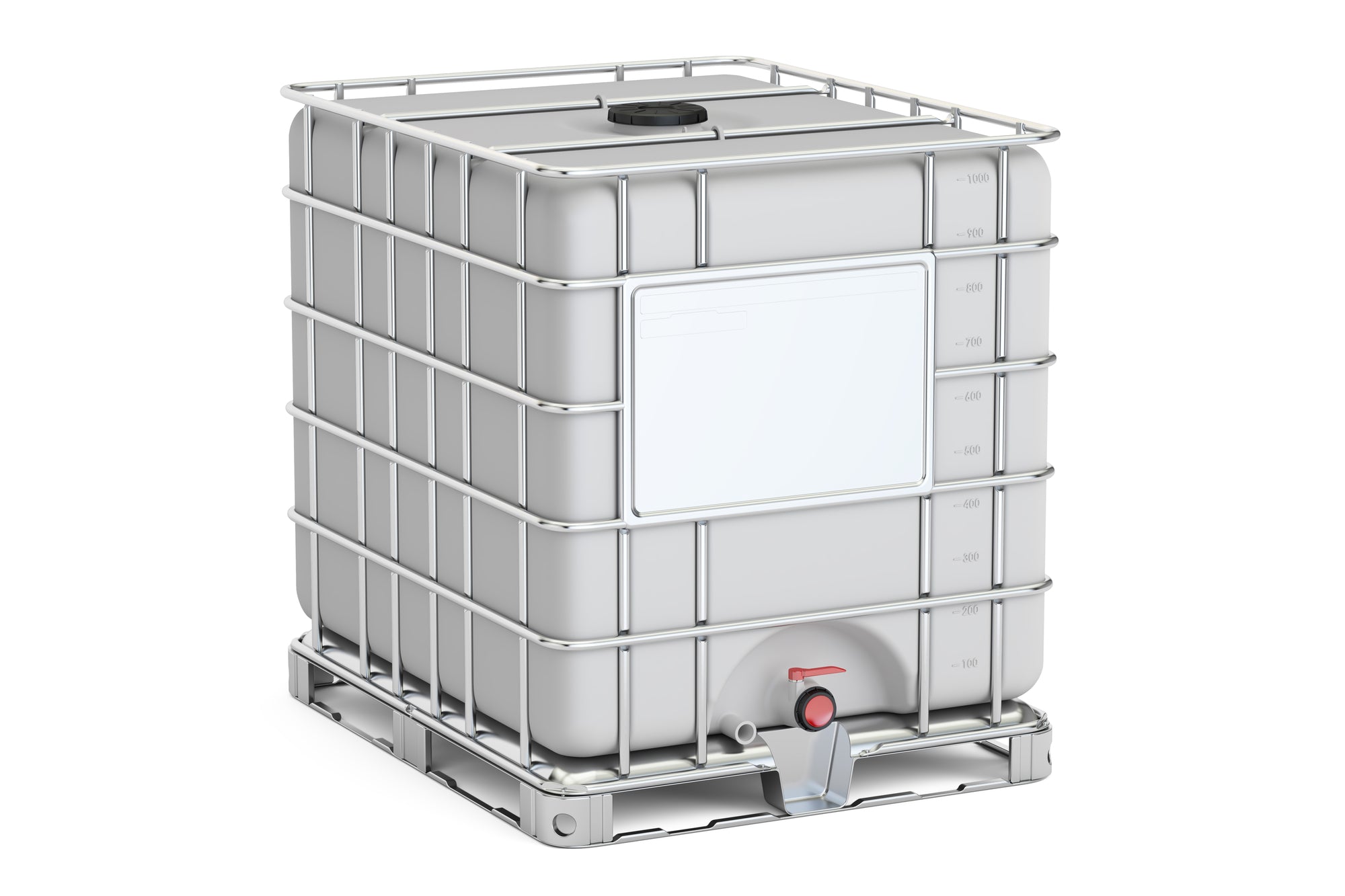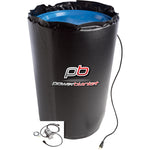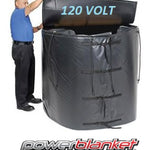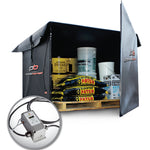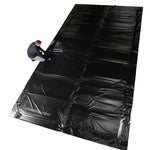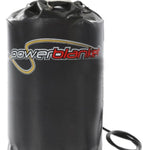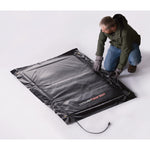You have no items in your shopping cart.
The ABCs of IBC: Decoding the Importance of IBC in Tank Nomenclature
Article At-a-Glance
What Does IBC Stand For?
IBC stands for Intermediate Bulk Container, a versatile and efficient solution used across various industries for storing and transporting liquids, powders, and semi-solids, ensuring safe and efficient movement of products in the modern supply chain.
Key Takeaways
- Define IBC: IBC stands for Intermediate Bulk Container, a key component in industrial storage and transportation, known for its versatility and efficiency in handling liquids, powders, and semi-solids.
- Common Uses: IBCs are widely used across industries, including chemical, food and beverage, pharmaceutical, and cosmetics, for the safe and efficient movement of products.
- Types of IBCs: There are two main types of IBCs—rigid and flexible. Rigid IBCs are made from high-density polyethylene (HDPE) and are ideal for secure storage, while flexible IBCs offer versatility and cost-effectiveness for smaller projects.
- Material and Design: IBCs are constructed from durable materials like HDPE, making them suitable for harsh environments and ensuring they can be stacked to maximize storage space.
- Choosing the Right IBC: Selecting the appropriate IBC depends on the product type, volume, and specific application needs, ensuring optimal storage and transportation solutions.
$2,186.99 USD 330 Gallon IBC Tote Heater w/ Lid Cover (120V)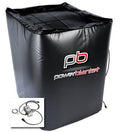
Regarding IBC tanks, certain terms and phrases are commonly used in the industry. Understanding these terms is crucial for accurately decoding the importance of IBCs in tank nomenclature. Some of the most commonly used terms include "IBC tank," "IBC tote," "IBC container," "intermediate container," and "high-density polyethylene (HDPE)." Each term refers to different aspects of IBCs, from their overall design and construction to their specific materials and applications.
For example, "IBC tote" is a term used to describe intermediate containers that are specifically designed for handling and transporting products. "IBC container" refers to the entire unit, including the tank, pallet, and cage. In contrast, "intermediate container" is a broader term encompassing both IBCs and other types of containers designed for storing and transporting products.
Finally, "HDPE" is a term used to describe the material used to construct IBCs. This material is strong, durable, and resistant to impact, making it ideal for use in the harsh and demanding environments of industrial and commercial applications.

Understanding the ABCs of IBCs, including the various terms and phrases used in the industry, is crucial for accurately decoding the importance of IBCs in tank nomenclature. Whether you're a business owner, supply chain professional, or just looking to better understand the world of intermediate bulk containers, knowing the lingo is essential to the journey.
Understanding the Basics: What Does IBC Stand For?
What are IBCs used for?
Due to their versatility and efficiency, Intermediate Bulk Containers, or IBCs, have become a go-to solution for storing and transporting liquids, powders, semi-solids, and other materials. These IBC containers are designed to meet the needs of different industries, including those dealing with hazardous materials, food products, and consumer goods. This section will delve into the various uses of IBC containers and their importance in the modern supply chain. Intermediate bulk containers ensure products' safe and efficient movement, covering everything from storage and handling to transportation and distribution.
The versatility of IBC containers sets them apart from other storage solutions. They are commonly used for liquid, semi-solid, or powder, and while they can also be used for solids, they may not be the most suitable option. Additionally, intermediate bulk containers are 100% scalable and reusable, making them versatile for a wide range of products. Furthermore, their medium size makes them ideal for various applications and the ability to store and transport many different types of products.
In addition to their versatility, IBC tanks have several other uses that make them an indispensable part of the modern supply chain. An intermediate bulk container is often used for the transportation of chemicals and food and beverage products. IBC tanks are also commonly used in the pharmaceutical and cosmetic industries and for storing and transporting industrial and agricultural products.
Another advantage of an intermediate bulk container is its durability and strength, making them ideal for products to be stored in harsh outdoor environments. They are also designed to be stackable, which maximizes storage space and reduces transportation costs.
IBC tanks are a versatile and efficient solution for storing and transporting many products. Whether you're dealing with hazardous substances, food products, or consumer goods, IBCs are designed to meet the demands of various industries. Their many uses make them an indispensable part of the modern supply chain.
Are there different types of IBCs?
Several varieties of intermediate bulk containers are available on the market, each designed for specific functions. One of the most popular models is the rigid intermediate container, which can be easily positioned using a forklift while remaining secure. These containers are made from high-density polyethylene and are designed to be strong and durable, making them ideal for storage and transportation applications.
On the other hand, flexible or folding IBCs, are more malleable and less rigid than their rigid counterparts. They can also be smaller containers than other more standard sizes. While they are less secure, they offer more versatility in packaging. For example, flexible IBCs can be packaged in boxes or folded, making them ideal for transportation, while rigid IBCs cannot be packaged in such a way. Additionally, flexible IBCs are generally less expensive, making them popular for smaller projects.

However, it is essential to note that flexible IBCs may not be as effective for smaller projects, especially regarding transportation. They are less secure and may not provide the durability required for specific applications. This is why choosing the right type of intermediate container is essential based on your particular needs, whether a rigid or flexible container.
Both rigid and flexible intermediate containers have unique benefits and drawbacks, making them suitable for different applications. Whether you're looking for a secure solution to store chemicals or other liquids, or a versatile transportation option, there is a type of intermediate bulk container to suit your needs.
Which type do I need?
What types of the intermediate bulk container is required depends upon the type and location of the container. Those that carry hazardous materials will have an IBC to ensure that their safety is protected. Many liquids can easily be used in rigid IBCs. For non-hazardous materials like soils and powder, IBCs are generally the most appropriate choice. This type is less protected and can be easily retrieved from where they are stored or transported as a flexible IBC that can fold and compress to reduce bending forces.
Choosing the right type of intermediate bulk container (IBC) for your needs is important for ensuring your products' safe and efficient storage and transportation. There are several factors to consider when making your choice, including the type of product you are storing or transporting, the volume of product you need to store or transport, and the specific requirements of your application.
For example, a rigid IBC made from HDPE might be your best choice if you are storing or transporting hazardous materials. This type of IBC is solid and durable, making it ideal for handling heavy or hazardous products. However, if you need a more versatile and cost-effective option, a flexible IBC may be a better choice. Flexible IBCs can be packaged in boxes or folded, making them ideal for the transportation and storage of smaller volumes of products.
Ultimately, the type of IBC you need will depend on your requirements. It is essential to carefully consider your needs and choose the type of IBC that will best meet them and ensure your products safe and efficient storage and transportation.



